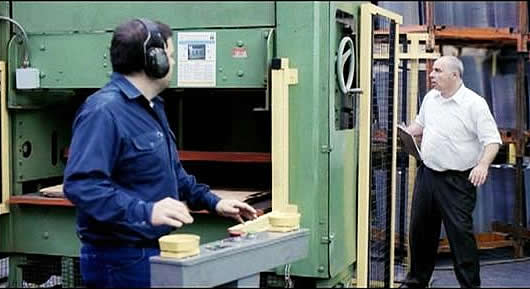The Grim Reality of Workplace Safety

By Janet Bagnall, THE MONTREAL GAZETTE
Hugues Blier was 64 years old, an experienced construction worker, when he stepped onto a ladder at his Montreal work site that, unknown to him, was not firmlyattached to the wall. The ladder collapsed and he fell 2.9 metres to the ground. Four days later, on Sept. 2 last year, he died, having suffered severe brain trauma.
Death in the workplace in Quebec remains a grim reality: Blier was just one of 211 Quebecers who died in workplace accidents or of workplace-related illnesses in 2012, seven more than in 2011. They died crushed against rock or steel, electrocuted by high-voltage lines, struck by machinery or in falls. But in what might come as a surprise to many Quebecers, the majority of workplace deaths in the province come from job-related illness. In 2011, the latest year for which Quebec’s breakdown is given, 68 workers died in an accident, 136 of work-related illness.
Tomorrow is April 28, a day of commemoration for workers who died on the job. The date was chosen in 1984 by the Canadian Labour Congress and is recognized around the world. This year, for the first time, the Quebec flag is to be lowered to half-staff at the National Assembly.
And not just any illness: As much as 89 per cent of workplace illness in Quebec is caused by exposure to asbestos. Asbestos mining in Canada has probably come to an end with the Parti Québécois government’s cancellation last year of a loan to a Quebec mining company. But asbestos will continue to kill workers who mined it or handled it on construction sites: Asbestos-related illness can appear 40 or more years after initial exposure. Globally, the World Health Organization estimates that at least 90,000 workers die avoidably early deaths every year because of asbestos exposure.
Lack of safety in the workplace remains a terrible problem, Thibodeau (Marc Thibodeau, a representative with the Metallos/United Steelworkers) said, especially in non-unionized workplaces. “Fines (from the CSST) are too low to have an impact,” he said. “Death on the job doesn’t cost anything. It’s not right.”
More News: The Gazette